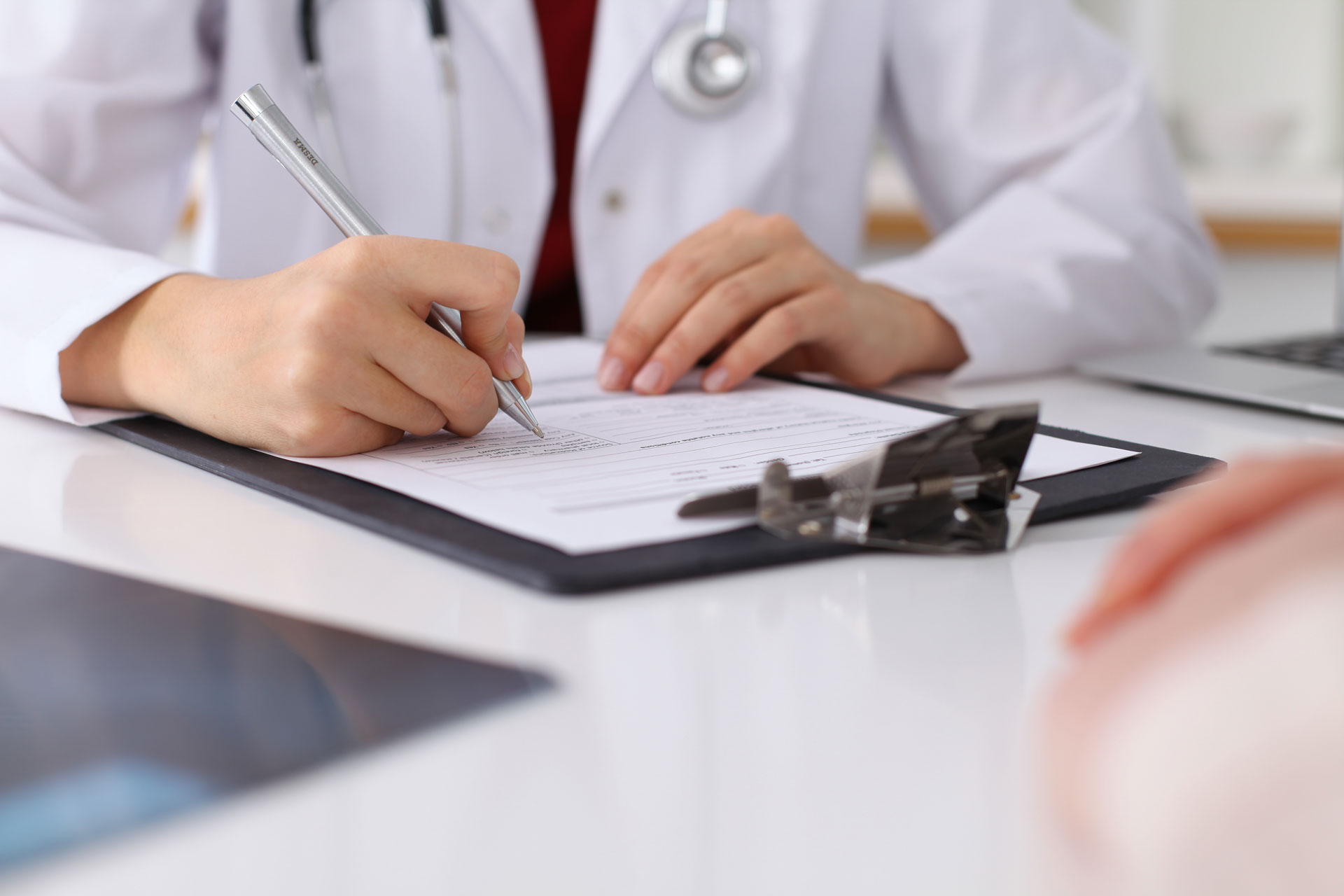Anxiety and Depression Medications
Anxiety and depression can affect someone’s life in many ways. Read on to learn about anxiety and depression medications, and available treatment.
Questions About Treatment?
Our knowledgeable team is ready to discuss your situation and options. Your call is confidential with no obligation required.
Overview of Anxiety and Depression
Anxiety and depression can negatively affect someone’s life in many ways. For those who struggle with more serious anxiety or depression symptoms, anxiety and depression medication can help. When using anxiety and depression medication, it’s often most successful as part of a well-rounded treatment program that helps someone work on life skills and underlying issues that may be causing anxiety and depression symptoms.

Can You Have Anxiety But Not Depression?
While depression and anxiety can often be co-occurring conditions, you can have anxiety without having depression. Symptoms of anxiety can occur due to several issues and causes. Taking an anxiety medication could be a good option for those who struggle with anxiety symptoms.
What Are the Main Causes of Anxiety and Depression?
Before deciding if you need to take anxiety or depression medication, it’s important to understand the causes of anxiety and depression. When a medical professional prescribes medications, it’s also important to understand the root cause of a client’s symptoms to prescribe the best medication for anxiety and depression that suits their specific needs.
Common causes of anxiety and depression include:1
- Experiencing traumatic or stressful events
- Genetics or a family history of mental illness
- Going through a major life change
- Serious medical problems
- Side effects of taking certain medications
- Using alcohol or drugs
What Drugs Are Used to Treat Anxiety?
Several drugs may be used to treat anxiety. When picking out an anxiety medication, it’s important to work with your doctor to determine which one is right for your specific needs. Telling your doctor about all your symptoms and what you’re experiencing in your daily life can help you pick out the right anxiety medication.
Selective Serotonin Reuptake Inhibitors
Selective serotonin reuptake inhibitors (SSRIs) have become a common medication that can be used for treating anxiety. SSRIs were originally developed to treat depression. Still, studies have shown their effectiveness in treating anxiety, OCD, PTSD, and other mental health conditions. SSRIs are often a better medication option than benzodiazepines because they have fewer addictive properties.2
Selective Serotonin and Norepinephrine Inhibitors
Selective serotonin and norepinephrine inhibitors (SNRIs) are a medication that is commonly used to treat depression, but studies have also shown them to be an effective treatment for anxiety disorders. SNRIs work by affecting neurotransmitters in the brain that help regulate mood and relieve depression and anxiety symptoms.3
Benzodiazepines
Benzodiazepines are common anxiety medications and are effective due to their sedative and calming properties. Benzodiazepines work by affecting the neurotransmitter GABA in the brain. Common benzodiazepine medications for anxiety are alprazolam (Xanax), diazepam (Valium), lorazepam (Ativan) and clonazepam (Klonopin).4
Buspirone
Buspirone is an anxiety medication that is used for the short-term treatment of anxiety symptoms. Buspirone is from a class of medications called anxiolytics which are primarily designed for anxiety treatment.
How Do Anti-Anxiety Medications Work?
Anxiety medications affect certain neurotransmitters in the brain that help regulate mood. Usually, anxiety medications have the best effects when combined with a well-rounded treatment program that uses therapy and other rehabilitative activities. Over time, clients will see improved anxiety symptoms and may be able to stop taking the medication altogether.
What Drugs Are Used to Treat Depression?
Several medications may be used to treat depression symptoms. These will be detailed below.
Selective Serotonin Reuptake Inhibitors
SSRIs are commonly used to treat symptoms of depression. SSRIs affect the serotonin levels in the brain, which can help treat and manage depression symptoms.
Selective Serotonin and Norepinephrine Inhibitors
SNRIs have also shown to be an effective treatment for depression. By affecting neurotransmitters in the brain, SNRIs help clients manage depression symptoms while they work through a treatment program.
Vortioxetine and Vilazodone
Vortioxetine and vilazodone are SSRI medications that are commonly used to treat major depressive disorder. Both medications are FDA approved and have shown effective in treating depression symptoms.
Monoamine Oxidase Inhibitors
Monoamine oxidase inhibitors (MAOIs) are extremely strong antidepressant medications. They are commonly only used to treat those with serious symptoms of depression or when other medications have not been effective.5
N-Methyl-D-Aspartate Receptor Antagonist
N-methyl-d-aspartate receptor antagonists (NMDA) are a medication that has been shown to be effective in treating depression symptoms. Clinical studies have found that NMDA medications can be used to help reduce suicidal thoughts and other serious depression symptoms. However, these medications are not always used to treat depression because they do have addictive properties.6
Side-effects of Depression and Anxiety Medications
While antidepressants and anti-anxiety medications are helpful in many ways, there are still possible side effects of antidepressants and anxiety medications that you should be aware of before taking them. If you experience any serious side effects, you should discuss them with your doctor, so they can adjust your dose accordingly or help you switch to a medication that may be better suited to your needs.
Side Effects of Antidepressants
Side effects of antidepressants can range from mild to serious. Before prescribing a medication, your doctor will consider your medical history to help choose a medication that is least likely to have any side effects. However, if depression medication side effects do occur, you should talk to your doctor or seek immediate medical attention if they are serious. Common depression medication side effects are:
- Constipation
- Diarrhea
- Dizziness
- Erectile dysfunction
- Headaches
- Indigestion or stomach aches
- Insomnia
- Loss of appetite
- Reduced sex drive
Side Effects of Anxiety Medications
Common side effects of anxiety medications include:
- Blurry vision
- Confusion
- Drowsiness or fatigue
- Headaches
- Memory loss
- Trouble sleeping
- Upset stomach
Alternative Home Remedies for Depression and Anxiety
For those who struggle with less serious symptoms of anxiety and depression, other home alternatives may be effective for treating these symptoms rather than taking an anxiety and depression medication. Common home alternatives to taking anxiety and depression medication are:
- Yoga
- Meditation
- Breathing Exercises
- Physical Exercise
- Acupuncture
Get Help for Depression and Anxiety at Great Oaks Recovery Center
If you are looking for depression and anxiety treatment, Great Oaks Recovery Center can help. The knowledgeable treatment professionals at Great Oaks can help determine if an anxiety or depression medication may be right for your needs. Along with medication for anxiety and depression, Great Oaks offers well-rounded treatment programs to help you get the best possible results.

Therapies
Therapy can be very beneficial during depression and anxiety treatment. Working with a therapist will help you learn coping mechanisms that help with depression and anxiety symptoms. Your therapist may also help uncover underlying conditions and causes of depression and anxiety. Working through all underlying conditions while treating depression and anxiety will help make recovery more successful.
Dual Diagnosis
Great Oaks Recovery Center also specializes in dual diagnosis treatment. Those who struggle with mental health issues may also struggle with other underlying issues such as addiction or past trauma. When someone has a dual diagnosis, it’s important to treat both conditions simultaneously to get the best results.
Aftercare
A successful treatment program takes care of clients during treatment and provides resources after treatment has been completed. Aftercare such as continuing to work with a therapist or regular check-ins can help someone continue to manage mental health symptoms and will lead to long-term success.
Resources
- https://www.cdc.gov/tobacco/campaign/tips/diseases/depression-anxiety.html
- https://www.ncbi.nlm.nih.gov/pmc/articles/PMC3181684/
- https://www.mayoclinic.org/diseases-conditions/depression/in-depth/antidepressants/art-20044970
- https://nida.nih.gov/research-topics/opioids/benzodiazepines-opioids
- https://www.webmd.com/bipolar-disorder/guide/monoamine-oxidase-inhibitors
- https://www.ncbi.nlm.nih.gov/pmc/articles/PMC3816696/
Questions About Treatment?
Our knowledgeable team is ready to discuss your situation and options. Your call is confidential with no obligation required.

